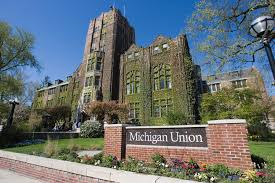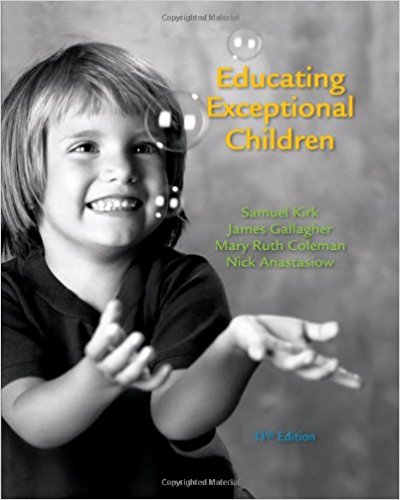Background
Mr. Kirk was born in Rugby, North Dakota, United States, on 1 September, 1904, to the farmers Richard and Nellie Kirk. He grew up on in a farm town and taught farmhands how to read at night.






(EDUCATING EXCEPTIONAL CHILDREN is a classic yet state-of-...)
EDUCATING EXCEPTIONAL CHILDREN is a classic yet state-of-the-art book for Introduction to Special Education and related courses. Authored by luminaries in the special education field, it introduces readers to each of the thirteen disability categories, and to the needs of children who are gifted and talented. The Thirteenth Edition continues to focus on the strengths of previous editions, while also providing new material about such important hot topics within the field as genetics, neurology, inclusion, assistive technology, and information processing. The text provides key, research-based teaching methods and strategies for children with various exceptionalities, and also offers analysis of ecological factors that influence the exceptional child in and out of the classroom. This edition also features current coverage of the Response to Intervention Model, comprehensive and up-to-date descriptions of the characteristics associated with each disability, the most current teaching techniques for each category, and helpful references to available resources.
http://www.amazon.com/gp/product/049591360X/?tag=2022091-20
Mr. Kirk was born in Rugby, North Dakota, United States, on 1 September, 1904, to the farmers Richard and Nellie Kirk. He grew up on in a farm town and taught farmhands how to read at night.
Samuel Kirk received his degree of Bachelor of Philosophy from University of Chicago in 1929. In 1931 he earned Master of Science from University of Chicago. In 1935 Mr. Kirk finished University of Michigan with Doctor of Philosophy. He obtained his Doctor of Humane Letters from Lesley College in 1969.
Kirk served in the military where he created a program for recruits who struggled with reading and writing. He began his teaching career at the Oaks School in Chicago in 1929, where he worked specifically with boys who were delinquent and had mental disabilities.
His interest in the field of special education continued as he worked closely with individuals with learning disabilities. Samuel Kirk "wrote so widely and so authoritatively on so many aspects of mental retardation and learning disorders and was responsible for so many innovations in diagnosis, training, and social policy". In 1963, Dr. Kirk delivered a speech to an education conference and was the first to use and define the term "learning disability".
This speech had a monumental effect on social policies and also helped name Dr. Kirk to the federal post by John F. Kennedy who had a sister who had a mental disability (now more commonly called an intellectual disability). Dr. Kirk laid the groundwork for passing laws, which required schools to provide help for children with learning disabilities. In public policy (1964), Samuel Kirk persuaded Washington to provide money in order to train teachers to help students with learning disabilities.
Dr. Kirk’s commitment to students with learning disabilities led to the first ever Institute for Research on Exceptional Children more than 50 years ago, which is still a popular foundation in the special education department. Within Dr. Kirk’s publications regarding learning disabilities, he describes classifications used for children with learning disabilities. This includes a unified classification of children with low intelligence, while they are differentiated based on a degree of learning deficit, for educational purposes.
He also listed the causes he discovered to be associated with learning disabilities. These are as follows: brain injuries, physiological disturbances, hereditary factors, and cultural factors.
Samuel Kirk, who devoted his life to educating others, worked to establish programs for people with learning disabilities. He was instrumental in obtaining legislation to require schooling for children with special needs, and he succeeded in securing funds to train teachers. He was honored with numerous awards.
(EDUCATING EXCEPTIONAL CHILDREN is a classic yet state-of-...)
(Selected papers on Special Education)
(Book on teaching reading)
Quotations: "I have used the term 'learning disabilities' to describe a group of children who have disorders in development in language, speech, reading, and associated communication skills needed for social interaction. In this group I do not include children who have sensory handicaps such as blindness or deafness, because we have methods of managing and training the deaf and the blind. I also exclude from this group children who have generalized mental retardation." (Kirk 1963; NASET 2007).
Served as major Army of the United States, 1942-1946. Fellow American Psychological Association (Edgar Bell award 1980). American Association for Mental Deficiency (award 1969).
Member International Council Exceptional Children (president 1941-1943), National Society Study Education (chairman 1950 yearbook com), British Association Special Education (honorary vice president 1962), Sigma Xi.
Married Winifred Eloise Day, June 25, 1933. Children: Jerome Richard, Nancy Lorraine.
